アイキャッチ.jpg)
This article is a continuation of our interview with Tekken series Executive Game Director and Chief Producer Katsuhiro Harada, and Tekken Project Game Director and Development Producer Kohei Ikeda.
Click here for Part 1 ▶ [Tekken 30th Anniversary] From the Mouths of Katsuhiro Harada and Kohei Ikeda! Behind the Scenes on Developing Tekken 8 and the Mindset Needed of a Developer (Part 1)
The topics for Part 2 will be: the mindset a game developer needs, how game developers work, and trial and error throughout Tekken’s 30-year history.
Preparing to be a Game Developer: Communicate with Schoolmates Who have Different Values
―Many people make indie games nowadays; is it a good idea to experience indie development before working for a game company?
Harada: I think it’s a wonderful idea. It’s nice to gather 10 or so friends to have healthy discussions with while working together.
You don’t have to finish the game, it’s enough to just reach a state where people can give you feedback.
⑥.jpg)
―Is that so you can get a head start on learning about game development?
Harada: What’ s more important is the experience of working in a team with people from different disciplines.
So school club activities are a good place for producers/directors/planners, people like me who come from a literature/arts background.
It’s also good to do what Ikeda did; create a community at the arcade, regularly participate in events, and other activities outside of school that give you opportunities to meet different people.
―What important lessons can a game developer learn from group activities?
Harada: It teaches you how to communicate with people who think differently from you.
Game development involves people from all disciplines, not only sciences, and not only arts. You will need to ask people like artists and musicians to help make the game.
For example, if someone who doesn’t know how to draw talks to an artist, it’s very possible that they won’t see eye to eye.
In this situation, you’d need the communication skills to express your vision, befriend others, and ask them to do things for you.
The company won’t teach us these things, so you have to interact with a bunch of different people while you’re still at school.
―So experiences unrelated to game development are useful when working for a game company.
Ikeda: I was in the soccer club in school, but when I was at the arcade, I would talk to kids from different schools and even strangers I didn’t know.
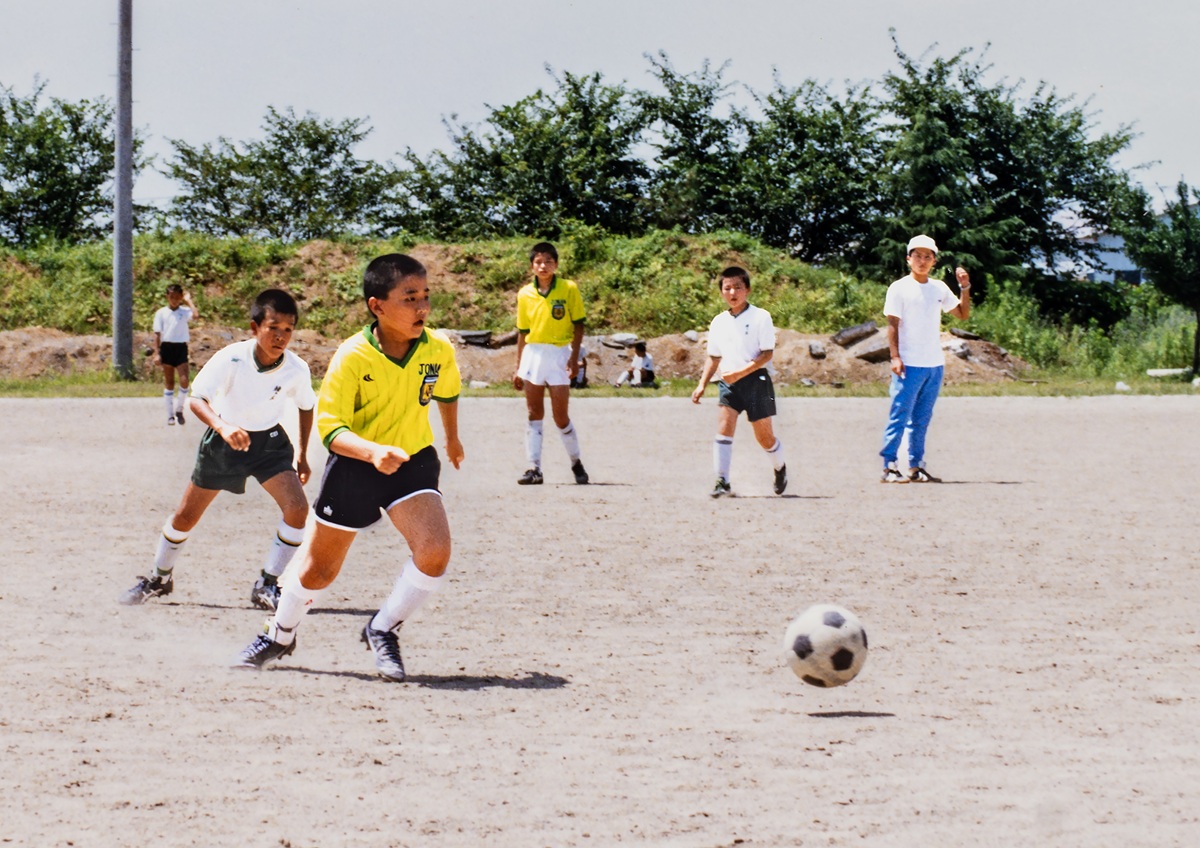
I had a job in visual media direction after I finished school, so I spent 7 or 8 years making monthly content in teams with assistant directors and actors.
I’m sure that my experience making things in a team has helped me develop games.
―There are tons of communication techniques people use, so is it important to use these techniques when talking to someone with different values?
Harada: I think it’s more important to be interested in the person and try to figure out what’s important to them.
When you’re at school, you get to be with all kinds of people, so it’s the perfect place to have these experiences.
I was in the Boy Scouts and did sports in school, so I got to meet people from all backgrounds.
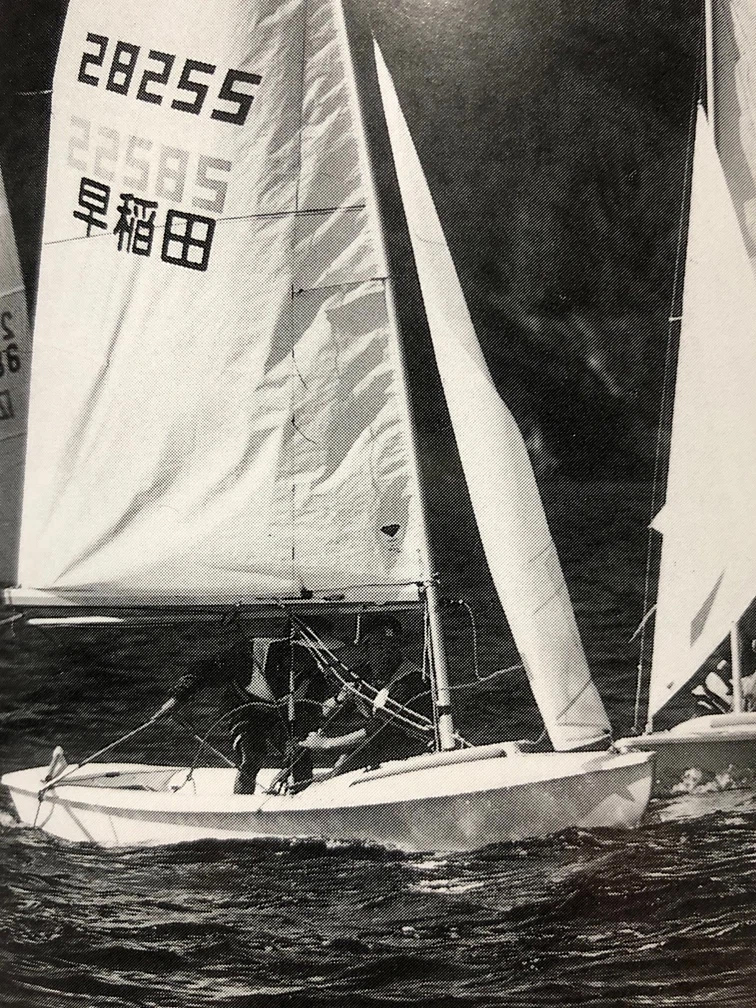
That’s why I have no trouble talking about anything, from budgets with company executives to scouting players at the arcade.
―Is that because you were able to figure out what was important to these people?
Harada: I’m not an audio person, but the people on the sound team had no problems with me giving direction on music used in the Tekken Project.
It’s because I could persuade them through communication.
I identified the strengths of each person so when I talked to them, I could get them on my side by saying “this is what you’re good at, this is what people are looking for right now, so if you make music in this way it should go well.”
―When did you start trying to persuade people who think differently from you?
Harada: When I was still in school.
―And it’s important to be interested in the person you’re trying to convince.
Harada: It’s very important.
Ikeda: You can only do so much by yourself.
Cooperation between many people is needed to make a good game. I think it’s important to know and communicate with people from the perspective of refining ideas by considering the opinions of others as well.
⑦.jpg)
Harada: Ikeda likes watching movies, but he doesn’t just look at what’s shown on screen, he also considers other information like who the director is and their mindset.
So he’s naturally geared to not just look at the final product but also show interest in who on the team did what.
―Having an interest in people changes how you see things.
Harada: It’s our job to show interest in people, discover their strengths, and link them to each other.
These are important skills for people from an arts background who want to make games but can’t program or draw.
Working to Make Players, Shareholders, and Developers Happy
―What’s important to keep in mind when working as a game developer?
Harada: I always tell the people who work under me to balance the satisfaction of players, shareholders, and themselves, since we have to make all three of them happy.
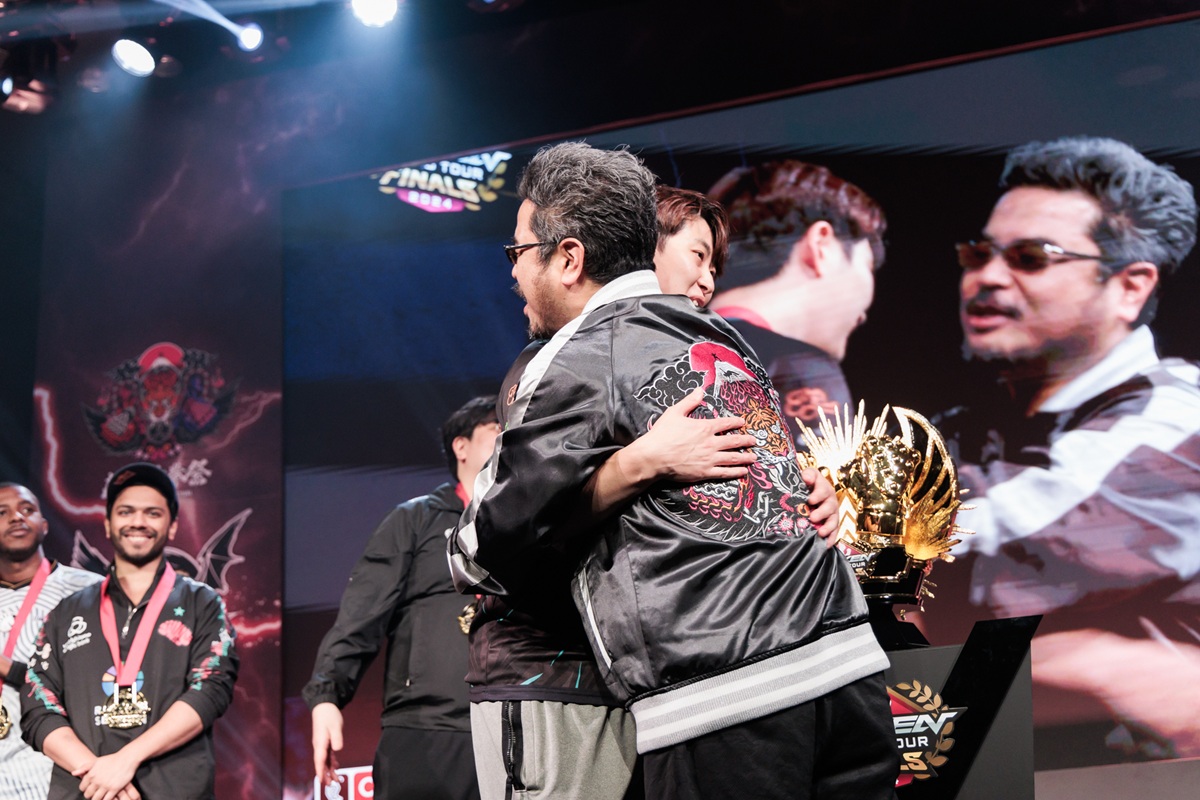
Some say that developers should just work harder, but you won’t get to make your next game if you work too hard and run out of steam.
―Some people say that you should devote yourself to the craft and do whatever it takes; are you saying that’s not the case?
Harada: When I was young, I said that you should keep going until you drop, and I even slept overnight at the studio for about two months once.
I believed that I contributed to the world and made the game better by sacrificing my health.
But I was only able to do that because I was young back then.
The reality is that with age, even veteran developers start experiencing mental health issues.
That’s when I realized it would be a loss to everyone if the people who brought the creation into the world were unhappy.
There’s no point unless everyone’s happy, and it’s even worse when one person bears more of the burden than everyone else. Things were less clear-cut when I realized that.
The amount of content going into a game has grown significantly compared to games in the past.
Some people say you can use AI to speed things up… but the human touch is actually something very important in this industry.
Our current problem is how to balance the two.
⑧.jpg)
Sold Well to Mixed Reviews: Trial and Error Throughout the 30-year History of the Tekken Series
―It feels like as game development gets bigger in scale, it also becomes more difficult to steer the game in a particular direction. Hardcore, casual, and all players in between have to like the game. We now have access to player comments on social media. How do you navigate the current landscape?
Harada: That’s a tough question. Things that sell have their fair share of lovers and haters.
Hardcore players will rave over something they like, but when they say something negative, the message has great reach.
Casual players, on the other hand, won’t even post on social media even if they like something.
That’s why it’s possible for a game to sell well even if the reviews are mixed.
―So ”mixed” isn’t always a bad thing. Are there examples where only the hardcore players were positive about a game?
Ikeda: Tekken Tag Tournament 2 would be an example of that.
Hardcore players really liked the depth that came from being able to control two different characters, but the feedback from non-hardcore players was not favorable.
⑨.jpg)
It was the first Tekken game I worked on, and I played the game before that nonstop, so I was really motivated to make Tag 2 a good game.
So with that mindset, I asked for ideas from the team and incorporated the concept of having exciting battles by having control over two characters.
We even made a mechanic that let players do air combos while switching characters, which needed complex execution.
―You thought that more depth would make fans happier.
Ikeda: Arcade income on release day was great, but it started going down from day 2, and it had halved by day 4.
Even internally, there were fewer and fewer people playing the game during lunch.
When I asked why, many of them said that they couldn’t control two characters.
For a long time, the Tekken series has had “compatible characters”, or characters that had similar moves and controls (i.e. Nina and Anna), but by the time we were making Tekken Tag Tournament 2, the characters had become more unique and there were less similarities.
―Yes, I remember using King and his compatible character, Armor King. The two characters shared many commonalities in how they played and controlled, and it made me more confident in playing.
Ikeda: It made me realize that I wasn’t looking at the big picture.
There aren’t many players in the world like me who can execute complex controls.
Worded differently, Tekken sells millions of copies because it’s accessible to non-hardcore players as well.
⑩.jpg)
There were other examples of this.
I started working on Tekken after Tekken 6, and when a senior developer asked me what the series needed, I told him “a fleshed-out practice mode” because I was thinking from my hardcore player perspective.
But when we looked at the post-release questionnaires… Many people praised the Scenario Campaign Mode or the amount of content in the game, but nobody wrote anything about the Practice Mode.
That’s why I decided to learn more about our players before starting development on Tekken 7 and Tekken 8.
Harada: We managed to sell 12 million copies with Tekken 7, so I’m sure that knowledge helped convince everyone to come play Tekken 7 after Tag Tournament 2.
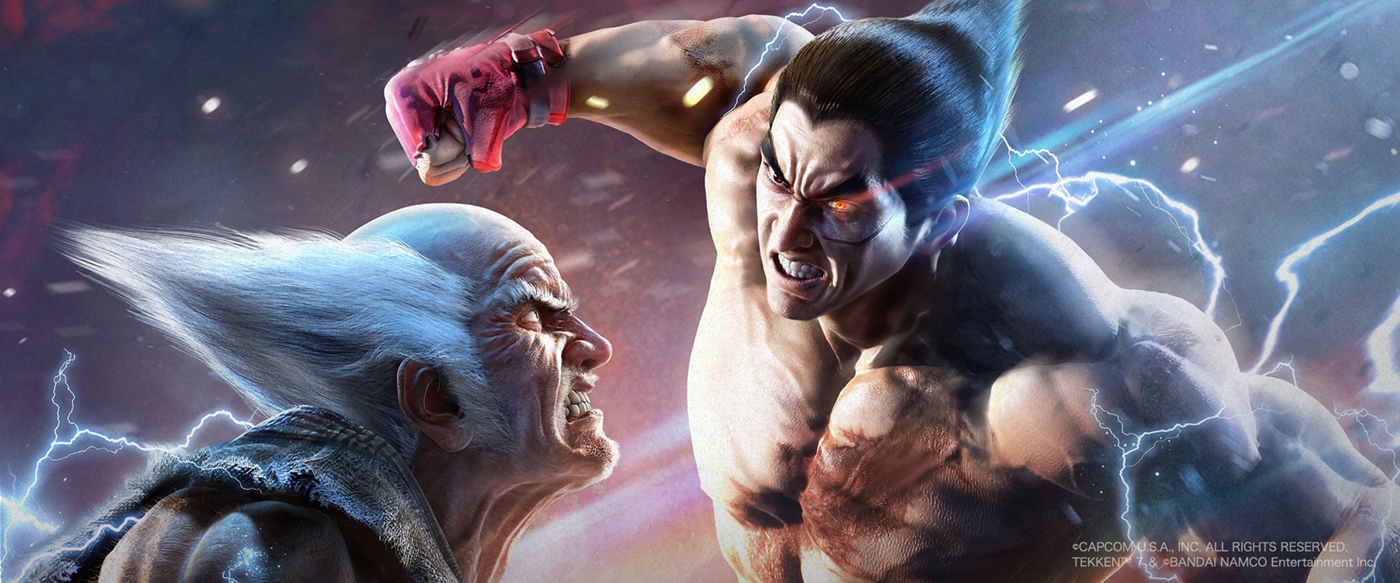
―Did you have these issues with other entries in the series as well?
Harada: Tekken 4 was the opposite of Ikeda’s example, where the game sold well, but reviewed the worst in the series.
The Tekken games before it sold very well, and the experience led to some misguided wisdom.
We thought that if we could tangibly describe why Tekken was selling, we could feed that back into adjusting the game’s concept and make something even better.
So we conducted a survey for arcade owners, players, and everyone in between, resulting in a big table containing data like character usage rates.
From this data, we discovered that people thought Tekken had too many characters and there were too many moves to memorize, the effects were too bright and it was hard to see, and Tekken games are always the same and never try to innovate.
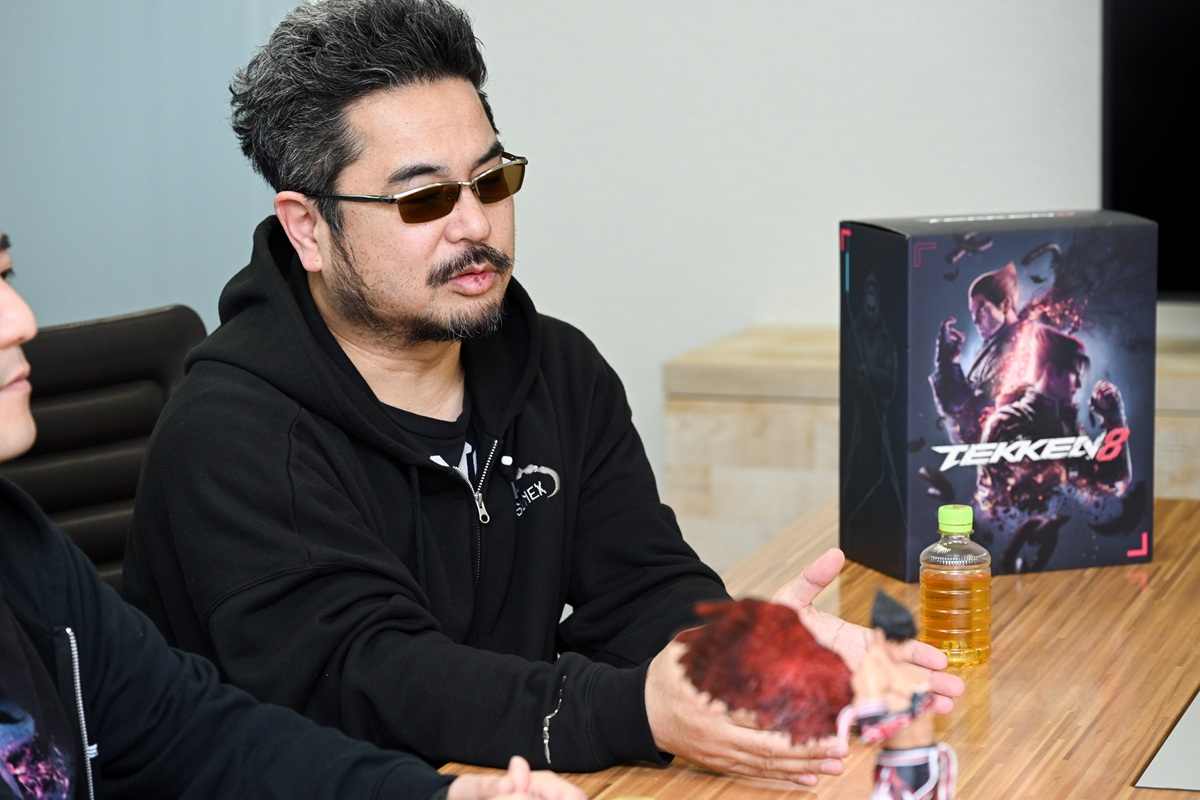
Based on that, we shrunk the roster, simplified the effects, and changed the game mechanics for Tekken 4.
But that took away everything that made Tekken a good game.
Income at the arcades went down, but arcades were still buying the boards since people liked the series up until then, and that meant higher revenue for the studio…
Ikeda: I also stopped playing Tekken 4. It just didn’t feel like Tekken to me.
―I would think fixing the bad things would improve the game, but it seems that actually wasn’t the case.
Harada: I consider it our biggest failure because it damaged the reputation we had built for the series.
―Was it wrong to consciously try to gain wisdom into the game or try to improve the game?
Harada: There’s nothing wrong with trying to gain insight.
But the problem was that I was so pressured to “do better” on our own, even though at the time, everyone just wanted us to make something that stayed true to what Tekken was.
By nature, people don’t really look for positive feedback.
That’s why for Tekken 4, I thought it was wise for us to ask about what was wrong about the series.
But we needed to ask about the positives too, since there are both positives and negatives to everything.
That’s why for Tekken 4, we lost sight of what made Tekken good.
⑪.jpg)
―It sounds like the Tekken series had its fair share of hardships. It’s commonly said that you’re never too young to fail, so is it a good idea to experience failure when you’re still at school?
Harada: That would be best.
We have access to more tools nowadays, so it’s a good idea to try your hand at making something even if it’s small scale.
People might hate it and you might feel down, but it’s better to have these experiences.
People who have more of these experiences will know how to overcome their failures. If you avoid the experience to begin with, you’ll never learn.
I think that being able to overcome disappointment is a skill that’s applicable to the games industry as well.
―I see; you can fail regardless of how well things are going, so it’s important to know how to get over your failures. Can you give a message to potential creators to close off today’s interview?
Ikeda: I started liking fighting games since I was about 12, and I’m now a game developer because I had laser focus on my goals.
Stay true to what you love, and when it comes to game development, find your focus so when someone asks what you want to do, you can give them a strong answer.
⑫.jpg)
Harada: I think the younger generations need to do things differently from us.
What I mean is, when I talk to young people, I get told any advice I give them will not help them surpass the legacy my generation created.
As AI and other technologies appear, I’m sure they’ll make games completely differently from how we’re doing it now.
The game industry changes drastically whenever new technology is introduced, so I consider it important to have the flexibility to change how you think and not be married to one particular way of doing things.
―Thank you for the interesting stories!
⑬.jpg)
Interviewer, writer: Shinichi Yamoto
TEKKEN™ & ©Bandai Namco Entertainment Inc.





